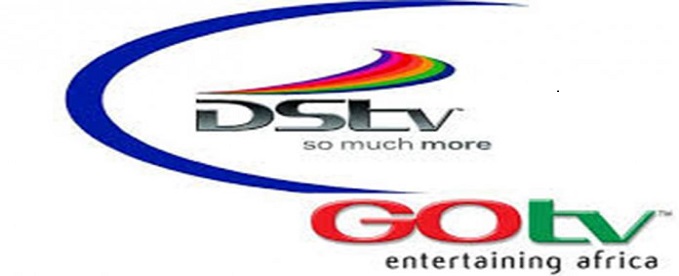Broadcasting
Reps in Fresh Moves to Force Paytv Operators to Implement Pay-per-View

The House of Representatives has considered the pay-per-view, pay-as-you-go and price reduction for DSTV and other cable satellite operators in the country.

Pay-per-view is a type of pay television or webcast service by which a viewer can purchase events to view via private telecast, while pay-as-you-go is a system in which a person or organization pays for the costs of something when they occur rather than before or afterwards
So there is a renewed interest following the adoption of the reports and recommendation of the Ad hoc Committee on Non–Implementation of Pay–As–You–Go and sudden Increment of Tariffs plan by Broadcast Digital Satellite Service Providers.
Unyime Idem, chairman of the Committee had earlier laid the report before the House and was considered by the House on Wednesday in Abuja.
The House called on the Federal Government as a matter of urgency to expedite action on implementing the content of the National Broadcasting Code and the Nigeria information Policy of 2014.
The House noted that this would trigger healthy competition in the industry, adding that the entertainment industry had a wider spectrum with limitless opportunities for the teeming youths.
The House stated that the visible absence of competitors in the industry was a tacit approval of monopoly of the industry by the present operators.
The House suggested that timely application of government regulatory intervention measures already articulated would revolutionise the industry and meet the people’s yearnings for Pay-as-you-go, Pay-Per-View and price reduction.
According to the recommendation, our extant laws that moderate operations in the industry is to be fine-tuned to meet the 21st- century regulatory laws of the industry that is dynamic as the entertainment industry.
The House noted that the commission that had the power to license and regulate the activities of service providers must also have the power to moderate in the protection of consumers.
The House stated that there was little or nothing a regulator could do if he was handicapped by laws that were not properly tailored to the needs of the society.
According to the reports, price increase and reduction have always been contentious issues for producers and consumers in the business world.
The House also listed the factors responsible for hike in subscription fee as recent increment of VAT by 2.5 per cent by Financial Amendment Act of Jan. 13 2020, the fluctuating foreign exchange rate in the country that affects the cost of content.
Others are: broadcast equipment, experienced hire and technical infrastructure, increase in bouquets for a wider choice, inflation on the cost of production and need to maintain workforce.
They identified the need of not throwing many young Nigerians, who are gainfully employed by pay-tv into the labour market were some necessary indices for price hike.
Broadcasting
Lagos Dominates NIN List as Nigeria Hits 117 Million Registrations

National Identity Management Commission (NIMC) has announced a milestone achievement, with over 117 million Nigerians now enrolled for the National Identity Number (NIN) as of February 28, 2025.

Lagos State emerged as the top contributor to this figure, boasting over 12.6 million registrations, followed by Kano State with 10.2 million.
According to NIMC’s latest data, male registrants outnumber female registrants, making up 56.5% of the total enrollment at 66,281,803, while female registrants account for 43.5% at 51,079,521.
The report highlighted regional enrollment trends, showing an almost equal distribution across Nigeria’s northern and southern regions.
However, Bayelsa, Ebonyi, and Ekiti States recorded the lowest enrollment figures, with Bayelsa reporting a mere 758,111 registrations.
Lagos State dominated the charts with 6,870,915 males and 5,741,419 females registered, while Kano trailed closely, boasting 5,924,126 males and 4,321,929 females in its 10.2 million total registrations.
Other notable states in the top 10 include Kaduna, Ogun, Oyo, Katsina, and Rivers. NIMC expressed optimism about further improving enrollment figures in underrepresented regions in the coming months.
Broadcasting
DStv Revenue Plunges as MultiChoice Loses Nearly 4m Subscribers

MultiChoice, Africa’s leading entertainment provider and operator DStv, has warned shareholders to brace for tougher times as the company struggles in a challenging economic climate.

MultiChoice has seen its DStv subscribers decline from over 23 million to 19.3 million in less than two years.
A huge portion of the subscriber loss happened outside its home of South Africa.
In an earlier statement, MultiChoice attributed the steep decline to economic pressures in key markets, particularly Nigeria.
“The loss in the rest of Africa has been primarily due to the significant consumer pressure in Nigeria, where inflation has remained above 30% for the majority of the last 12 months and, more recently, due to extreme power disruptions in Zambia,” the company said.
The company’s latest voluntary operational update, released in preparation for its financial results for the year ending March 31, 2025, reinforces the severity of its current challenges.
MultiChoice noted that the “challenging consumer environment has resulted in a decline in subscribers and limited revenue growth,” underscoring the financial strain faced by the company.
This development came amid increasing regulatory scrutiny, with Nigeria’s Federal Competition and Consumer Protection Commission (FCCPC) recently filing charges against MultiChoice for allegedly violating local regulatory directives.
Broadcasting
Court Fixes May 8 for Judgment in MultiChoice, FCCPC Dispute over Price Hike

Justice James Omotosho of the Federal High Court in Abuja has fixed May 8 for judgment in the suit filed by MultiChoice Nigeria Limited against the Federal Competition and Consumer Protection Commission (FCCPC).

Justice Omotosho fixed the date after lawyers representing the parties adopted and argued their written addresses for and against the suit.
The court had earlier restrained the Commission from taking “any administrative steps” against the plaintiff following an increase in the service price of two of its brands; DStv and GOtv.
The restraining order was a sequel to a formal request by MultiChoice seeking the court’s protection from planned sanction from the FCCPC, over the increase in the price of DStv and GOtv.
At the proceeding, the court granted the Commission’s request for an extension of time to regularise its processes and also allowed the plaintiff to withdraw its application for interlocutory injunction which has been overtaken by event.
Arguing its case, MultiChoice through Moyosore Onigbanjo, SAN, its lead counsel, submitted that the bone of contention is “whether the defendant have the right to control the price at which the plaintiff offers its services to the public.”
While acknowledging the regulatory powers of the Commission, the senior lawyer argued that the Act establishing the FCCPC did not confer on it the powers to regulate price or prevent anyone including the plaintiff from increasing its prices.
Besides, Onigbanjo stated that the issue of whether the defendant can regulate price has been litigated before between the two parties, adding that the Tribunal had held that the Commission has no powers to regulate prices of goods and services in the country, except the President of the Federal Republic of Nigeria.
The Plaintiff’s lawyer also submitted that even the president who is clothed with the powers to regulate prices has maintained “that his government does not believe in price control” but, that prices are determined by market forces of demands and supplies.
The plaintiff in addition submitted that if the FCCPC has no powers to control price “where does he have the powers to prevent the plaintiff from increasing price.
MultiChoice subsequently accused the Commission of discrimination, stating that all businesses in the country have been increasing their prices in line with economic conditions and inflation without the Commission raising an eyebrow, save with the plaintiff.
He, therefore, urged the court to grant all the reliefs sought in the suit.
While adopting his counter affidavit in opposition to the suit, Professor Joe Agbugu, SAN, lead counsel for the defendant, urged the court to first address the cause of action; which is the the issue of increase in the price of DStv and GOtv.
Agbugu disclosed that the Commission on February 25, wrote the plaintiff after it announced price increase effective from March 1, 2025.
According to the senior lawyer, MultiChoice was summoned to appear before the Commission on February 27, “they wrote that it was not convenient and proposed March 6. We then said that in the interim they should hold on with the price increment.”
Agbugu further stated that, “there was no issue of price regulation or fixing as at the time the action commenced.”
Besides, he claimed that the statute establishing the FCCPC, gave it “powers to check exorbitant pricing” and also powers to “regulate abuse of dominant position in the market” as it relates to prices and passing of cost to the consumer.
“The plaintiff occupies a dominant position in the television and entertainment,” Agbugu claimed, adding that the case before the court is not of price regulation but the powers of the Commission to investigate prices that are deemed exploitative and abuse of dominant position.
“The Commission is not to tell you to use price A or B but to determine that the price is exploitative” he said, “they ran away to be investigated over their planned action.
“Our action is not about price fixing; the issue is about whether the price is exorbitant…the mandate of the Commission is to protect the consumer.”
Reacting to the claim of discrimination, defendant’s lawyer, submitted that, “abuse of dominant position qualified them to be singled out for exorbitant pricing.”
Agbugu subsequently urged the court to strike out the suit and dismiss it because it attacks the major task of the Commission of protecting consumers.
“The suit should be dismissed and the plaintiff returned to us for investigation,” he added.
Responding, Justice Omotosho announced that, “judgment is reserved to May 8.”

 Telecom3 days ago
Telecom3 days agoMTN, Lynk Global Make Africa’s First Satellite-to-Mobile Call

 Broadcasting2 days ago
Broadcasting2 days agoDStv Revenue Plunges as MultiChoice Loses Nearly 4m Subscribers

 E-Business3 days ago
E-Business3 days agoSystemSpecs’s Subsidiary Deelaa Becomes Whatadeal

 E-Financial3 days ago
E-Financial3 days agoNigeria Gets Fresh $500m World Bank Loan for Economic Stimulus Programme

 General News3 days ago
General News3 days agoSERAP Asks National Assembly to Drop Bill to Jail Nigerians who Fail to Vote

 E-Financial3 days ago
E-Financial3 days agoUninsured Depositors of Heritage Bank to Receive Liquidation Dividends In April – NDIC

 Telecom3 days ago
Telecom3 days ago15-Year-Old Autistic Artist, Kanye, to Unveil World’s Largest Art Canvas on Autism Awareness Day

 Telecom3 days ago
Telecom3 days agoSmart Treasure Investment Team’s Initiatives Eradicate Poverty, Says Aminu

























